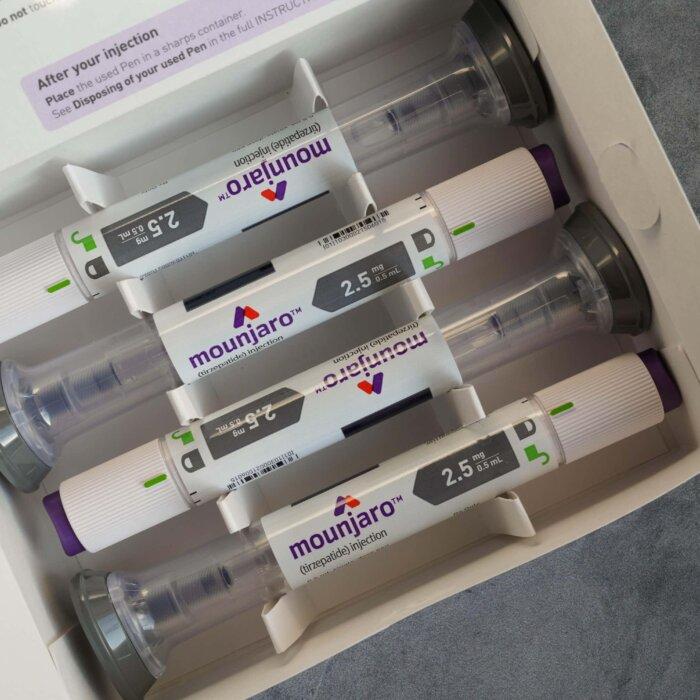Weight management services for obese people are “insufficient,” experts have said after a new report revealed that some individuals seeking support are waiting up to five years.
The report follows the government announcement that weight-loss drugs are to be offered to unemployed obese people as part of a pilot scheme run in conjunction with pharmaceutical giant Eli Lilly, which manufactures the Mounjaro jabs.
Specialist weight management services are so overstretched that they have closed their waiting lists entirely, according to the Obesity Health Alliance (OHA), a coalition of 60 health charities and medical royal colleges, which produced the report.
The organisation is expecting that “unprecedented” demand for the so-called “skinny jabs” will put obesity management services under even more pressure.
“Many healthcare professionals who provided testimony to OHA directly state that this has added a significant increase in demand on already overstretched services, with waiting lists now routinely reaching three to five years.
‘Postcode Lottery’
The OHA has written to Health Secretary Wes Streeting calling for a review of existing NHS obesity services to highlight the problem and present the economic case for expanding access to support.It has also called for the government to make sure local health bodies are providing the recommended levels of care to avoid a “postcode lottery.”
Alfie Slade, government affairs lead at the OHA, said: “The new weight loss drugs represent a breakthrough in treatment, giving hope to the millions of people struggling to manage their weight, but they also expose the weaknesses in our current obesity services.
‘Tidal Wave of Demand’
Dr. Sarah Williams, an NHS clinician who contributed to the report, said that doctors were having to ration the prescribing of the weight-loss drugs.“We are seeing a tidal wave of unprecedented demand that we simply cannot meet with the resources currently available,” she said.
NHS officials have suggested that the rollout of Mounjaro across England will need to be staggered owing to anticipated demand, with nearly a quarter of a million people expected to receive the drug over the next three years.
5-Year Trial
On Tuesday, both the prime minister and health secretary suggested that the rollout of weight-loss jabs could help boost the economy by getting some of those on disability benefits with obesity-related health conditions “back to work.”A five-year trial in Manchester will assess the “real-world effectiveness” of Mounjaro, generically known as tirzepatide, following the announcement of a £269 million cash injection from Lilly to the government.
Hailed as the “King Kong” of weight-loss jabs, a previous study of Mounjaro found people taking the drug, along with support to make changes to exercise and diet, lost an average of 21 percent of their body weight over a 36-week period.
Mounjaro is a glucagon-like peptide-1 agonist, a family of medications that help manage blood sugar that were originally used to treat type 2 diabetes before being repurposed as weight-loss drugs.
They work by balancing blood sugar in a way that suppresses the appetite, with their popularity surging after a number of celebrities and influencers shared their weight-loss stories on social media.
Mounjaro is reported to cause fewer side effects than its main rivals Ozempic or Wegevy, which are both manufactured by Danish company Novo Nordisk and are brands of the generic semaglutide.
Side effects are more common when the drug is given at higher doses, and include nausea, vomiting, diarrhoea, decreased appetite, constipation, and abdominal discomfort.
The European Medicines Agency said this year that research on rodents has suggested the artificial hormones packaged in tirzepatide could raise the risk of thyroid cancer, although the health problems linked to obesity include an increased risk of several types of cancer.
A Department of Health and Social Care spokesperson said: “Obesity is one of the biggest preventable killers, it costs the NHS more than £11 billion a year and it also places a significant burden on our economy.
“With obesity-related illness causing people to take more days off sick, obesity drugs can be part of the solution.
“We’re tackling the obesity crisis head-on—restricting junk food advertising on TV and online, along with banning the sale of high-caffeine energy drinks to children under the age of 16.”







